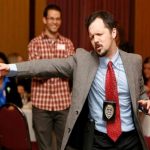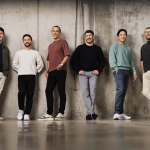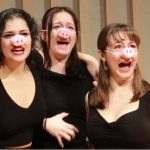Heartbroken in Pittsburgh
A Marquette professor who grew up in Pittsburgh and attended the synagogue school reflects on the shootings.
![Vigil for the victims of the Pittsburgh synagogue shooting. Photo by Governor Tom Wolf from Harrisburg, PA [CC BY 2.0 (https://creativecommons.org/licenses/by/2.0)], via Wikimedia Commons](https://urbanmilwaukee.com/wp-content/uploads/2018/10/30651020217_e40df7af87_k-1024x683.jpg)
Vigil for the victims of the Pittsburgh synagogue shooting. Photo by Governor Tom Wolf from Harrisburg, PA [CC BY 2.0 (https://creativecommons.org/licenses/by/2.0)], via Wikimedia Commons
And now I have to stand up and ask how this happened. How this mix of hate and racism and nationalism and lack of gun control turned into the worst anti-Semitic attack in U.S. history. I can’t even write this without tearing up. I was shaking from nervousness when talking about Kavanaugh. How do I explain Saturday’s events? How do we remind our students that older adults did not grow up with this violence? That we actually could go to the movies without worrying about getting shot? That active shooter drills for school children is not normal? And that going to your house of worship—a synagogue, a church, a mosque, a Sikh temple—should not be life threatening? My mom, also a professor, is in the midst of teaching the Holocaust to students who assumed, incorrectly, that the hate unleashed in the 1930’s had been safely put to bed. A writer at the New Yorker put it this way—
They are the toxic politics of the President, and the racist, nationalist fervor that has been inflamed by his rise, and the success and the militancy of the gun lobby, which for decades has refused to acknowledge the obvious: that one way to have fewer killings is to make it harder for Americans to possess guns. Each of these is a national crisis on its own.
So, as a professor of dispute resolution, ethics, international conflict—what do I say to our students? That the “A” in ADR can also mean activism? That as lawyers they have a special responsibility for the future of the justice system? That they will be in positions of power to prosecute and to defend…and to draft legislation that could change this calculus? That, as young people, they have an even greater reason to invest in the future?
I have stopped pretending to be neutral—pretending that saying there are “good people on both sides” and that “I’m a nationalist” do not have consequences. That allowing candidates who espouse racist, anti-Semitic, or homophobic hate to run under a party’s banner without denouncing and de-funding these candidates does not perpetuate the mistaken belief that their beliefs are just a fringe. And that sending thoughts and prayers are enough—the people killed on Saturday were already praying. This shooter went after the synagogue because, in particular, it had promoted national refugee Shabbat last month. This is the height of empathy—promoting others’ welfare because one remembers what it was like to be a refugee. This attack is on all of us with differences—in religion, in race, in ethnicity, in anything—and in complete ignorance and in total denial of what makes America great. Enough. So in addition to all of the above I will also tell students this: Vote next week as if your life depends on it—because it just might.
Professor Andrea Kupfer Schneider is the Director of the Dispute Resolution Program at Marquette University Law School.
Op-Ed
-
Wisconsin Candidates Decry Money in Politics, Plan to Raise Tons of It
 Dec 15th, 2025 by Ruth Conniff
Dec 15th, 2025 by Ruth Conniff
-
Trump Left Contraceptives to Rot; Women Pay the Price
 Dec 8th, 2025 by Dr. Shefaali Sharma
Dec 8th, 2025 by Dr. Shefaali Sharma
-
Why the Common Council’s Amended Budget is Good Policy for Milwaukee
 Nov 20th, 2025 by Alds. Marina Dimitrijevic and Russell W. Stamper, II
Nov 20th, 2025 by Alds. Marina Dimitrijevic and Russell W. Stamper, II




















Thank you Dr. Schneider. My heart breaks for you, your family and community as well as for Pittsburgh. Remembering the Holocaust means more than recounts the numbers, places and dates. It means working to make sure it never happens again. Sadly, as a nation and world we still haven’t learned the lessons. Thank you for all you are doing. Courage to you as you go forth into the classroom.